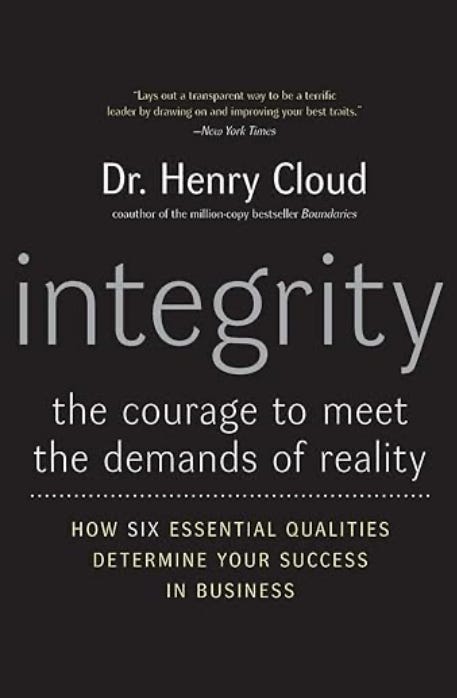The High Cost of Avoidance
What dogs, coal fires, and kings teach us about integrity
All King David’s Men brings you contemporary stories and reflections on virtue, inspired by the people who surrounded King David. Some of them are heroes, others anti-heroes. All of them provide a mirror for us to reflect on becoming better versions of ourselves.
Problems rarely disappear on their own. Whether in relationships, communities or within ourselves, issues left unaddressed tend to fest — and eventually they erupt. I’ve seen this truth firsthand, from my own home to history and Scripture.
Early intervention at home
A couple of weeks ago, a dear friend visited from out of town. While I can’t claim to offer Duchess of Sussex-level hospitality, I did want her to feel welcome. Unfortunately, my pandemic puppy didn’t get the memo.
Despite countless hours of training, he’s never gotten used to the idea of someone new in his space. It takes him weeks to decide that someone belongs there and that he can let down his guard. Stuffing his face with treats wasn’t enough to get him to stop glaring at her through the window and growling. I had to admit that he isn’t the friendly dog I would like him to be; he is the dog that he is.
Socializing a dog needs to happen early, within the first few months. Between covid variant surges and stark warnings about parvo, that didn’t happen. Had we not intervened by engaging a trainer, even taking him for a walk would have been a problem.
Training my dog to overcome his shyness has shown me the value of addressing issues early, before they become major problems. It’s far easier to stay in denial that the problem exists — and to be overwhelmed by the cost later.
The burning lesson of Centralia
This principle doesn’t just apply to personal life; entire communities have suffered from avoidance.
The residents of Centralia, Pennsylvania, likewise learned the hard way how issues that aren’t addressed early can quickly grow beyond our control. In 1962, a fire ignited a line of anthracite near the surface and continued through abandoned coal mines. Anthracite burns hotter and longer than regular coal and emits toxic levels of carbon monoxide. Residents knew they had a problem when the temperature gauges at a local gas station read 172°F.
The estimate to extinguish the fire at that time was $30,000 (the equivalent of $312,000 in 2024). For years, they deferred action or only partially addressed it. This led to sinkholes and breakout fires that eventually make the town uninhabitable. In 1984, Congress approved a relocation package for residents that cost $47 million ($124 million in 2024 dollars). Today, Centralia is a wasteland, off-limits to visitors.
With the benefit of hindsight, we can see where the situation could have been resolved earlier — by being more willing to pay the price up front. That would have required the town leaders to be honest with themselves and with experts who could help.
The price of royal avoidance
History isn’t the only place where we see the cost of unresolved problems. Scripture tells an even more heartbreaking story.
The biblical story of Absalom, King David’s son, shows the high price we pay when we ignore warning signs and fail to address hard issues (2 Samuel 13-18). Absalom is famous for inciting a resurrection against his father, but his festering rage could be seen years earlier.
Absalom’s murdered his half-brother Amnon after scheming for two years to avenge the abuse of their sister Tamar. Absalom fled to his mother’s village but longed to return, so he implored David’s general Joab to intervene. While David allowed him to live near the city, he refused to meet with him.
In frustration, Absalom burned Joab’s fields to force his hand once again. David allowed him back but still did not meet with him to work through what had happened with Tamar and Amnon. Meanwhile, Absalom’s anger continued to brew, eventually leading him to recruit an army of disgruntled people whom he led in rebellion against the king.
At numerous points, David and Joab could have addressed the root cause of Absalom’s anger. They could have taken steps to protect themselves and their fellow citizens against escalating violence, yet they chose appeasement — peace-faking rather than peacemaking.
When Joab killed Absalom in battle, David was overcome with grief. His son’s vengeance cost lives and traumatized the kingdom. The personal cost of addressing the issues early probably seemed insurmountable at the time. But it could not have been greater than the price the king and his kingdom ultimately paid.
The painful courage to face reality
I can’t say that my affection for my dog reaches the level of David’s for his son Absalom. However, I can relate to the emotional distress we feel when facing a difficult truth about someone we love. My dog has been a constant companion for five years and licked the tears off my face when my daughter ran away. Nevertheless, I had to face the reality that he needs extra boundaries when we have guests. The times I let down my guard, he did not reward my lapse in judgment.
In Integrity: The Courage to Face the Demands of Reality, renowned psychologist Dr. Henry Cloud defines character as the ability to meet the demands of reality. All of the examples above are cautionary tales of what can happen when we lack the courage to face difficult truths.
King David was not willing to step up to address the issues facing his family. Likewise, the town leaders of Centralia weren’t willing to confront the grave danger the underground fires posed to their town. Ignoring or hiding the situation didn’t make it better. Rather, the fires burned underground and wreaked havoc on the surface — a foretaste of the destruction ahead.
If we are to be people of integrity, we must be willing to admit hard truths and have the courage to take action. It is painful to confront the things we would rather avoid. But the consequences of allowing them to fester are far worse.
I’m curious: Have you been able to confront a situation before it had a chance to fester? Found yourself experiencing the consequences of avoiding hard conversations earlier? What would you do differently? What wisdom can you share with others?




